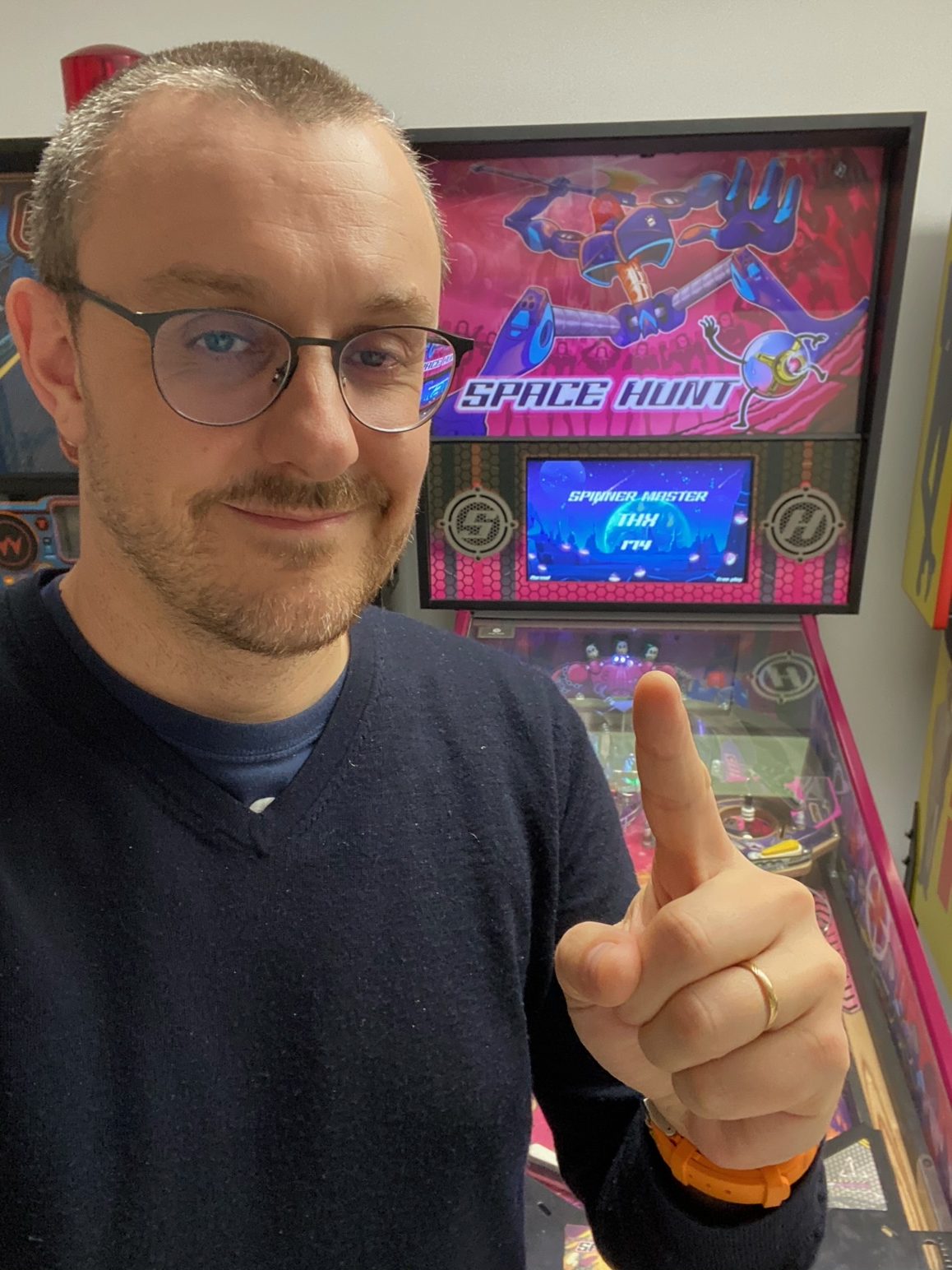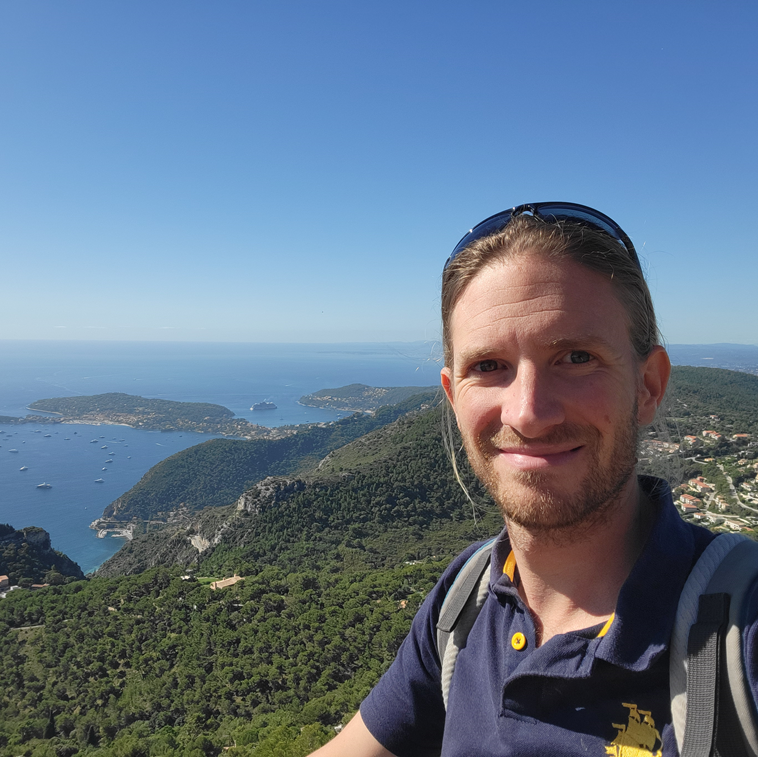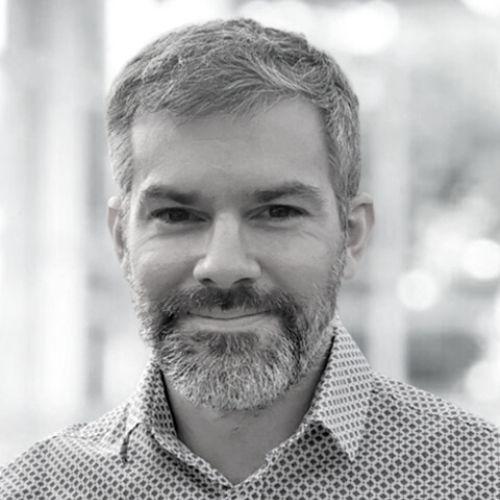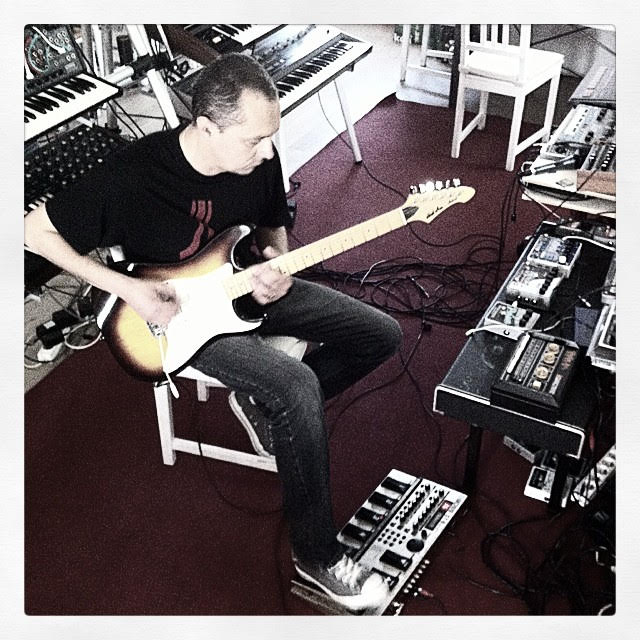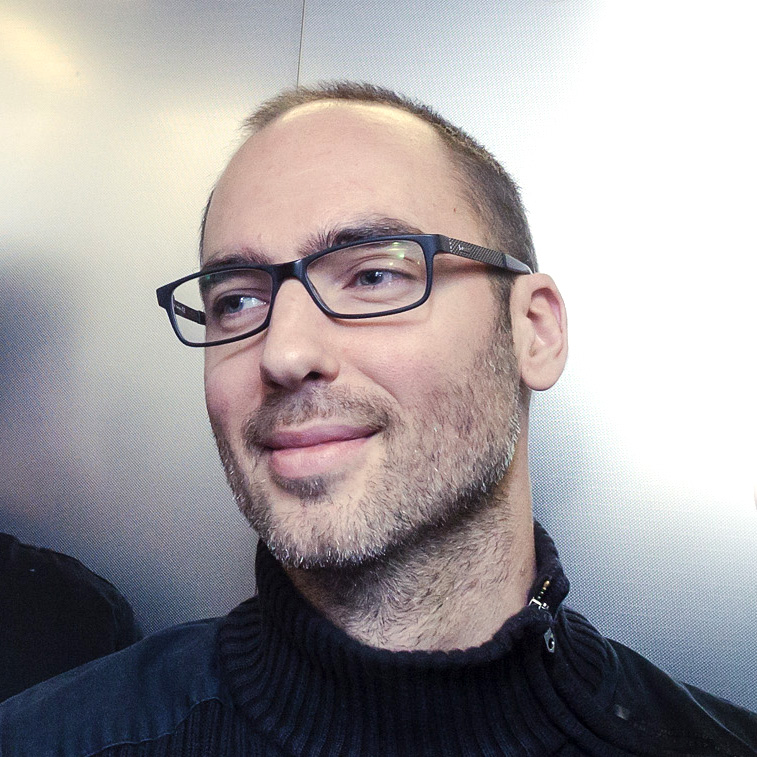Interview with Sébastien Muller – Designer and influencer
by Sabine Botella
Hello Sébastien, thank you for accepting this interview.ow can you tell me about your career path?
I started off with a BAC in electronics, following in the footsteps of my friends, but more seriously I was really interested in getting to know the inside of a computer. Then I did a DUT in statistics for two years, I wanted to do a DUT in computer science but I was on the waiting list so I chose this course and finally I prepared a master’s degree in computer science and Internet communications technology, I still ended up doing what I wanted. Then I worked in IT development for 15 years and now I’m a Data Analyst in the Human Resources department of a major bank in Luxembourg.
Do you remember your encounter with the pinball world?
Unlike many people in the community who spent their youth in bistros playing pinball, I spent my youth playing table soccer. I didn’t get into it until 2012, when I was 30. We were staying at Center Park where there were 3 pinball machines, and I started putting coins in them and thinking “ah that’s not bad!” once, then “ah that’s not bad!” twice, and on the third I started looking at the prices, which were still affordable at the time, and that’s how it all started. I bought 1, then 2, then 3, then 7, and now I’m down to 4. I love understanding how things work, I love taking things apart and seeing what goes on inside them, especially the mechanical parts. That’s also why I’m passionate about watchmaking, seeing the mechanism of a clock in action is almost magical, but I’ve never dared open a watch because it’s so meticulous. On the other hand, when you play pinball, especially with the 90s models, you always end up lifting the tray and repairing the little malfunctions. At first it looks very complicated, but in fact it’s not that complicated at all, it’s always the same principle. Computer development helped me a lot to understand how a game works and the code behind it.
That was the beginning, but I also learned that you had a “Soirée Flip'” channel on YouTube and Twitch – how did that come about?
Yes, I stream on Twitch for live and YouTube for replays and edited videos. It all started in 2016, I was actually watching a lot of American videos and when I was looking around I realized that no one was doing this in France, so I thought I’d be the first to do it, so I went for it. On Twitch, I spend my time chatting with people, playing the machine, explaining the rules of the game to them, because I love analyzing games, understanding the rules and trying to find the loopholes to make billions and billions of points. Now I have around 2200 YouTube subscribers.
So you came up with the rules of the game and tried to bend them, and it worked! How do you choose your pinball machines for demonstrations?
At the time, I didn’t know many people in the region, so I used to test pinball machines on a video game called Pinball Arcade. They were licensed by 90s manufacturers Williams, Bally and Gottlieb, and they made a virtual retranscription of the real tables. Today, we’re a group of around fifteen players in the Grand Est region of France, and we all go to each other’s houses, but above all we try not to buy the same pinball machines. That way, we can have fun on more different machines.
I’ve heard you’re an excellent player too. Do you take part in any tournaments?
Oh yes, I also play physical tournaments on physical machines, which takes up a lot of my free time. At the beginning of November I’ll be playing in the Dutch Open in Eindhoven, in September I played in the French Open, in October the Pin Enhancer tournament with my friends from Pinball Mag at Paris-Manga and in January there’ll be the finals of the French championship series… Maybe other projects like Switzerland for example, because by playing tournaments you end up getting to know people on an international level and opening up to competitions outside France.
How many rankings do you have?
I’m around 20th in France. I’ve only recently started competing again because I’d stopped for almost 2 years. I was frustrated, I was putting pressure on myself and finally now I’m going out to have fun and I’m getting better results. I’m still having fun, which is essential.
How did you get in touch with Hexa Pinball?
The first time I met them was at the Pontacq show in 2023, it was their first presentation of version 1 of Space Hunt. I was with the Pinball Mag team and we asked them to do an evening live show on the Pinball Mag channel. I played with Luis, it was a particularly noisy live show with a DJ hosting the evening etc., but I really enjoyed the Space Hunt. Following that live, I wrote an article on Facebook with constructive remarks, mentioning what I thought was good and what I thought could be improved, and Alexandre Mak contacted me to say that they agreed with what I’d written, and asked me to join the team. I said yes without hesitation!
So you were involved in the rules of the game, can you tell us more about them?
I produced a huge 30/40-page Word document detailing everything, and then Christophe André developed it into the game’s code. When you work on the rules of the pinball game, there are certain standards to be respected, for example the “ball save”, which is when you throw your ball, there’s a period of 20 or 30 seconds during which, if you lose the ball, the game will throw it again. This is a standard feature found on all modern pinball machines to avoid frustrating players.
How do you set the difficulty level in a game?
Here I started from what the team had already done before we met. For example, there are lights on the board with inscriptions on them, so you have to respect the universe and the theme, but then there are the missions, and that’s where I came in. The aim was to make the game more satisfying for the player. It’s all a question of balance between frustration and satisfaction for the player… he has to encounter difficulties, but not too many. You have to find the right balance, which is what the Americans call “risk and reward”.
Have there been many changes since Space Hunt V1?
We’ve added quite a few things, and that’s still going on today. We’ve reworked the missions a little, and introduced “wizard modes”, which are end modes, a big mission that arrives when you’ve completed the other missions. It’s more rhythmic and even more satisfying than the others, and the rewards are greater. Last week, we held a meeting to propose further improvements, and it’s an ongoing process. It’s a great advantage for the player, who regularly has new things to discover.
How did your work fit in with that of the team?
I worked more with Alex, Luis and Christophe to fix the bugs, and then Alex coordinated everything. The great thing about this team is that everyone involved is very good at what they do, and everyone has the same high standards.
Space Hunt is now on the market. Have you had any feedback from players on your part of the work?
Yes, of course, and that’s why we’re planning improvements over the coming months. Player feedback is essential. At the moment, we’re lacking something to keep the player busy when he’s not on a mission, so I’ve come up with an idea that you’ll no doubt discover soon, and which I think you’ll like a lot. We’re keeping the whole thing a mystery – the only thing I can say is that nobody’s done it yet.
Are you satisfied with Space Hunt and what do you think are its strengths?
I’m very satisfied, we’ve achieved a lot in 1 year. Space Hunt has an incomparable asset: it’s made in France, and we know how chauvinistic the French are 😊 It’s an original theme, the layout of the elements on the board is very well done, it’s very pleasant to play, the universe is very nice, the animations, the sounds all work together. As soon as Hexa Pinball is posted on the networks, Americans react by saying they’d like to try it out, which bodes well for the future.
Pinball enthusiasts are often people who first played the game in bars. Does pinball appeal to today’s youth?
More and more young people are taking part in tournaments and smashing all the scores. Last week at Paris Manga, a 16-year-old broke my all-time record on Space Hunt. I had done 530 million and he did something like 680 million, and even then, the pinball machine was in tournament mode so he didn’t have any extra marbles, he did it in 3 marbles while I had 5 or 6 marbles…we’re too old!!!!

